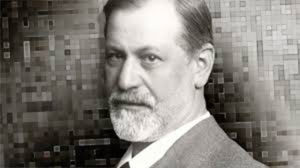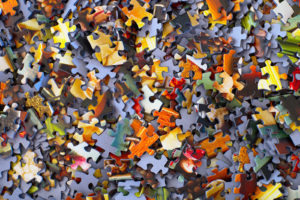Pour une nouvelle représentation de la fonction paternelle
Albert Ciccone
Psychologue, Psychanalyste, Professeur de Psychopathologie et Psychologie Clinique à l’université lyon 2.
01/04/2010
Résumé
Cet article propose de repenser la notion de « fonction paternelle », dont les représentations données par la psychanalyse sont souvent réductrices (créer un écart, interdire l’inceste, énoncer la loi…). les observations de bébés montrent tout d’abord que le bébé différencie ses partenaires, et que le père est d’emblée investi par le bébé, comme objet de relation différent de la mère.
La fonction paternelle est une fonction psychique, dans la position parentale du père comme de la mère. Bien avant de séparer, elle consiste à permettre, protéger, assurer les conditions du lien, créer un pont entre la mère ou plutôt les aspects maternels et le bébé, pour qu’ils puissent se rejoindre. elle s’articule à la fonction maternelle au sein du couple, et au sein même de la bisexualité psychique (ou « bisensualité psychique ») de tout un chacun, du père comme de la mère. Cette « biparentalité psychique » s’articule par ailleurs à la « bigénérationnalité psychique » (qui représente le rapport entre les aspects matures et les aspects infantiles de tout un chacun). La fonction paternelle, enfin, assure la continuité, la permanence et la modulation des formes de présence, dans les expériences inévitables de discontinuité, que fait tout bébé, et afin que la séparation soit créatrice de subjectivité, de croissance mentale.
Samenvatting
In dit artikel wordt de notie van de vaderlijke functie herdacht. De representaties die door de psychoanalyse hiervan worden gegeven worden vaak gereduceerd tot het incestverbod, het uitvaardigen van de wet en het scheppen van afstand.
Baby-observatie heeft aangetoond dat de baby al heel vroeg een onderscheid kan maken tussen vader en moeder en dat al van bij het begin de vader wordt geïnvesteerd als een object dat verschillend is van de moeder.
De vaderlijke functie is een psychische functie die zorgt voor scheiding, het toelaten en beschermen van de band, het waarborgen van een brugfunctie tussen moeder en kind opdat ze elkaar kunnen vinden. De vaderlijke functie articuleert zich aan de moederlijke functie in de kern van het koppel en in de psychische biseksualiteit van beiden.
Deze psychische « biparentaliteit » articuleert zich aan de psychische « bigenerationaliteit », die de relatie representeert tussen de rijpe en de infantiele aspecten van elk van beiden. De vaderlijke functie verzekert de continuïteit, de permanentie en de modulatie van aanwezigheid in onvermijdelijke ervaringen van discontinuïteit die elke baby doormaakt. De vaderlijke functie verzekert dat subjectiviteit en psychische groei tot stand komt.
Summary
In this article I intend to rethink the notion of « paternal function » which representations, as they are given by psychoanalysis, are often reductive (to create a gap, to forbid incest, to state the law…). First of all, infants observations show that the baby differenciates his partners and that the father is immediately invested by the baby as a different object of relation than the mother.
The paternal function is a psychic function, in the parental position of the father as well as the mother. long before separating, the paternal function consists in allowing, protecting and insuring the conditions of the bound, creating a bridge between the mother -or the maternal aspects- and the baby, so they can join each other. It is articulated to the maternal function within the couple, and within the psychic bisexuality (or « psychic bisensuality ») of everyone, the father as well as the mother. Furthermore, this « psychic biparentality » is articulated to the « psychic bigenerationnality » (which represents the link between the matures aspects and the infantile aspects of everyone). Finally, the paternal function ensures continuity, permanence and modulations of the forms of presence, in the inevitable experiences of discontinuity made by every baby, in order for the separation to become creative of subjectivity and mental growth.





